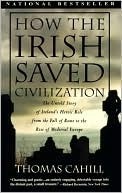More on this book
Community
Kindle Notes & Highlights
Read between
April 25 - April 29, 2022
Rome fell because of inner weakness, either social or spiritual; or Rome fell because of outer pressure—the barbarian hordes. What we can say with confidence is that Rome fell gradually and that Romans for many decades scarcely noticed what was happening.
There are, no doubt, lessons here for the contemporary reader. The changing character of the native population, brought about through unremarked pressures on porous borders; the creation of an increasingly unwieldy and rigid bureaucracy, whose own survival becomes its overriding goal; the despising of the military and the avoidance of its service by established families, while its offices present unprecedented opportunity for marginal men to whom its ranks had once been closed; the lip service paid to values long dead; the pretense that we still are what we once were;
Augustine’s is a sensibility that has since become so common that we no longer experience the Confessions as the earthquake they were felt to be by readers of late antiquity. For Augustine is the first human being to say “I”—and to mean what we mean today. His Confessions are, therefore, the first genuine autobiography in human history. The implications of this are staggering and, even today, difficult to encompass. A good start is made, of course, by reading the Confessions themselves and falling under their spell. But in order to grasp the immensity of Augustine’s achievement, one must read
...more
What is really lost when a civilization wearies and grows small is confidence, a confidence built on the order and balance that leisure makes possible.
Democracy depends on a well-informed electorate; and bishops could no longer rely on the opinion of their flocks—increasingly, uninformed and harried illiterates—nor, in all likelihood, were they averse to seeing their own power grow at the expense of the people. In many districts, they were already the sole authority left, the last vestige of Roman law and order. They began to appoint one another; and thus was born—five centuries after the death of Jesus—the self-perpetuating hierarchy that rules the Catholic church to this day.
He is surrounded, as are all the African Catholic bishops of his day, by Donatists, heretics who deny that the grace of the sacraments can be conferred through the offices of an unworthy priest, but in all other respects resemble their Catholic brethren.
Why do human beings do these things? The psychological mechanism is not far to find, since there is probably not a reader—even the most convinced atheist—who has not offered from time to time an old-fashioned quid pro quo prayer: if you let me pass this exam, I will return to church; if you make sure my wife doesn’t learn of my infidelity, I will give my next bonus to charity. The theology—the view of god—that lies behind these petitions is of an arbitrary trickster, a bad parent who can be coaxed, flattered, and manipulated. If belief in such a god is strong and primitive enough, it is easy
...more
The Irish, in any case, loved physical combat too much for intertribal warfare to disappear entirely.
Unlike the continental church fathers, the Irish never troubled themselves overmuch about eradicating pagan influences, which they tended to wink at and enjoy. The pagan festivals continued to be celebrated, which is why we today can still celebrate the Irish feasts of May Day and Hallowe’en.
after Patrick the eviler gods shrank in stature and became much less troublesome, became in fact the comical gargoyles of medieval imagination, peering fearfully from undignified nooks, and the belief grew strong that the one thing the devil cannot bear is laughter.
Ireland is unique in religious history for being the only land into which Christianity was introduced without bloodshed.
And this lack of martyrdom troubled the Irish, to whom a glorious death by violence presented such an exciting finale. If all Ireland had received Christianity without a fight, the Irish would just have to think up some new form of martyrdom—something even more interesting than the wonderfully grisly stories they had begun to learn in the simple continental collections, called “martyrologies,” from which Patrick and his successors taught them to read.
The Irish innovation was to make all confession a completely private affair between penitent and priest—and to make it as repeatable as necessary.
This adaptation did away with public humiliation out of tenderness for the sinner’s feelings, and softened the unyielding penances of the patristic period so that the sinner would not lose heart. But it also emphasized the Irish sense that personal conscience took precedence over public opinion or church authority. The penitent was not labeled by others; he labeled himself. His sin was no one’s business but God’s.
If our civilization is to be saved—forget about our civilization, which, as Patrick would say, may pass “in a moment like a cloud or smoke that is scattered by the wind”—if we are to be saved, it will not be by Romans but by saints.


